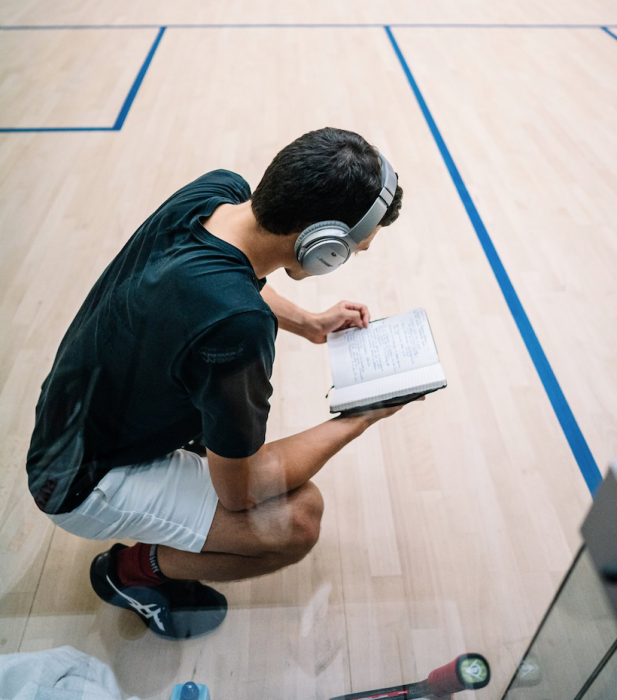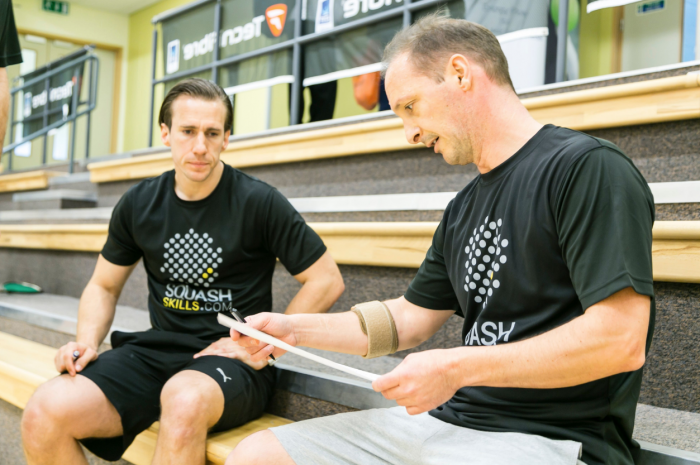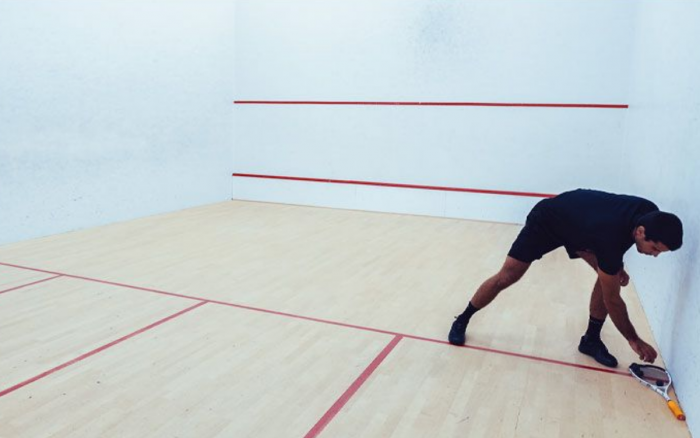To optimise your game and push yourself to play at the very best level possible, enhancing your physical conditioning is crucial. To fully optimise your training though, you need to move beyond vague assertions of ‘wanting to get fitter’, and start to really zero in on the key physical areas that you need to focus your efforts in.
For many amateur players however, it can often be difficult to know where to start when embarking on a physical training programme. There are a number of physical elements that make up the all-round squash athlete including endurance, strength, power, speed, and mobility. All have their own importance as part of the peak performance puzzle, but each individual’s needs will be different. For amateur players in particular, time is often limited – knowing where to prioritise training focus thus becomes even more crucial.
So what’s the best route to establishing where physical training time should primarily be aimed? There are 3 main sources we can use to identify areas of weakness, those being ‘Self-Reflection’, ‘Coach Feedback’, and ‘Fitness Testing’.
 Self-reflection
Self-reflection
Self-Reflection is probably the easiest and most straightforward place to start – how you feel in your matches is an obvious indicator as to your weaker physical areas.
Get into the habit of taking notes after you play, identifying what went well and what went not so well. By doing this you can start to clarify where you’re losing out – are you getting especially tired at the back end of games (endurance)? Are you struggling to pick up your opponent’s attacking shots to the front of the court (power/acceleration)? Are you finding you’re frequently off-balance when you’re lunging for the ball (strength)? Think and reflect with as much depth as you can to help start spotting the negative patterns, and what exactly needs to be improved.
 Coach feedback
Coach feedback
Coach Feedback is another very useful tool in establishing your training priorities, particularly for those who struggle to identify faults in themselves. Working with a coach on a regular basis will allow for ever more detailed feedback, and some great insights can be gleaned from a knowledgeable professional who is familiar with your game.
Another often untapped source of feedback along similar lines here is from your opponents themselves. When you play your friendly matches or club box leagues, take the time to have a chat with your playing partner afterwards and pick their brains as to where they felt you were strongest, or where they felt they could best exploit you. Your opponent might not have the same expert eye as a coach, but some really useful nuggets of info can be gleaned from listening to their thoughts on your game.
 Fitness testing
Fitness testing
Fitness Testing is the third main area of feedback, where you’re using objective data to ascertain where your strengths and weaknesses lay. Going through a battery of fitness tests on a regular basis can help you really clarify where your physicality needs to be improved.
It’s important with fitness testing however, to really ensure you’re actually measuring the right things. There are tons of fitness tests out there focusing on a wide variety of elements, but for them to be applicable and useful for you in improving your squash they ideally need to physically challenge you in a similar way to how you’d be challenged in a match. Court based tests that use squash-themed movements are going to provide the most valid feedback, while also being better suited to fit into your ongoing training and testing plan.
Gary Nisbet
B.Sc.(Hons), CSCS, NSCA-CPT, Dip. FTST
SquashSkills Fitness & Performance Director